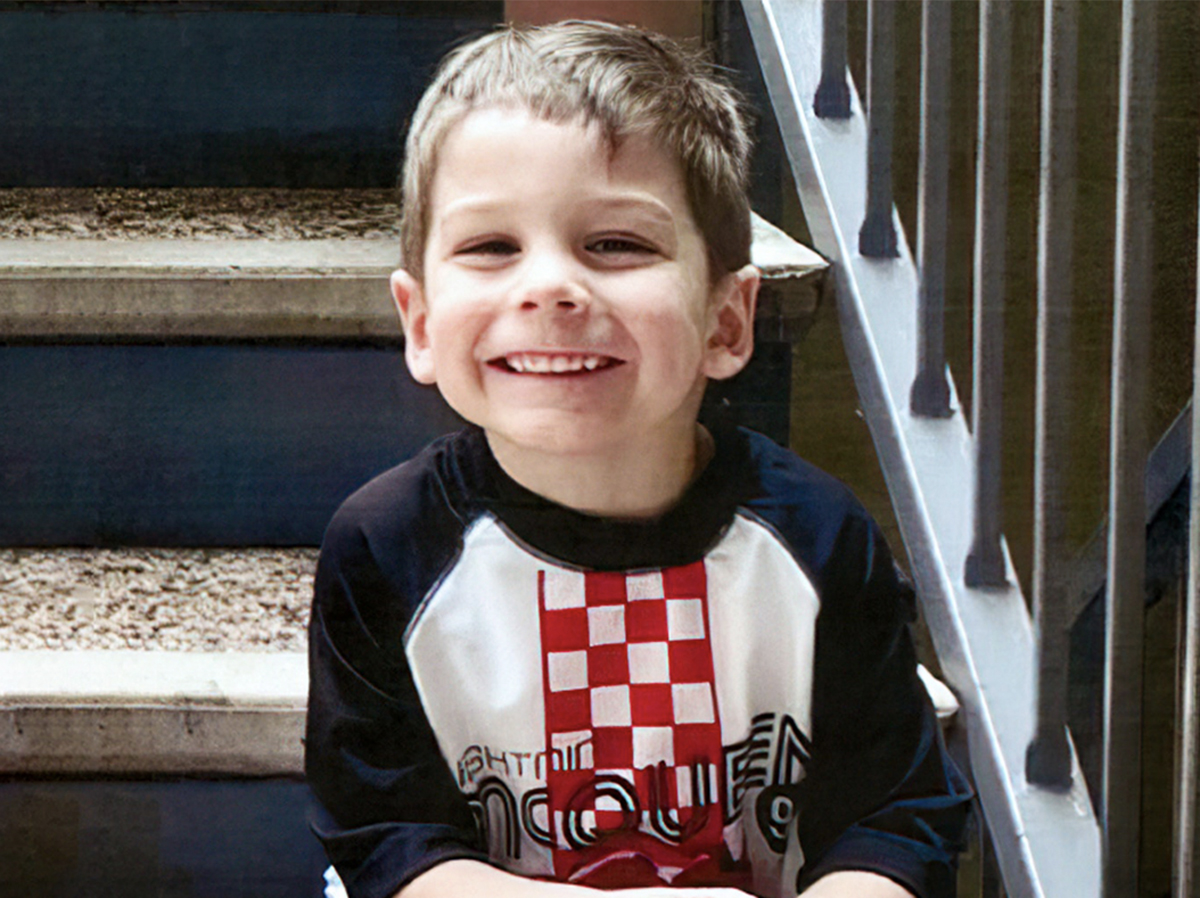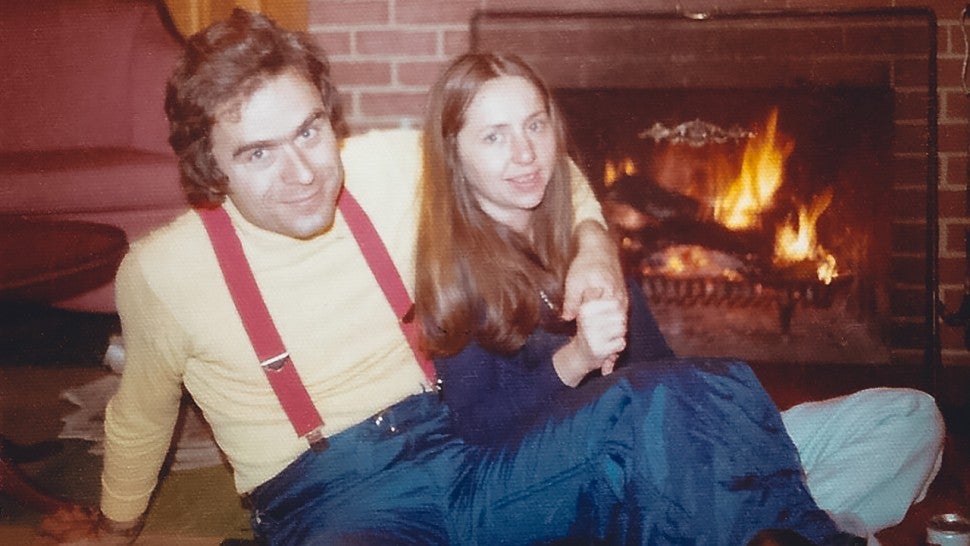The name Ted Bundy resonates deeply in the annals of criminal history, evoking both fear and fascination. Known as one of America's most notorious serial killers, Ted Bundy's life and crimes have been the subject of numerous books, documentaries, and films. However, beyond the headlines and chilling narratives lies a lesser-known aspect of his life—his son. This article delves into the enigmatic figure of Ted Bundy's son, exploring the truths, myths, and the enduring legacy of a controversial figure in modern history.
While much of the public's attention has focused on Bundy's heinous crimes, his personal life, including his relationship with his son, remains a topic of intrigue. This article aims to shed light on the life of Ted Bundy's son, separating fact from fiction, and providing a comprehensive understanding of this often-overlooked aspect of Bundy's life.
Through a detailed exploration of historical records, interviews, and expert analysis, we will uncover the truth behind Ted Bundy's son. This investigation not only reveals the human side of a notorious criminal but also highlights the broader implications of such a legacy on the lives of those connected to him.
Read also:212 Men Cast A Comprehensive Guide To The Film And Its Impact
Biography of Ted Bundy
Ted Bundy, born Theodore Robert Cowell on November 24, 1946, in Burlington, Vermont, was an American serial killer who terrorized the United States during the 1970s. His charm and good looks belied a dark and sinister nature that led to the murders of at least 30 young women, although the exact number remains unknown.
Bundy's life was marked by a series of events that shaped his transformation from a seemingly ordinary individual into one of the most feared criminals in history. Below is a table summarizing key aspects of Ted Bundy's biography:
| Full Name | Theodore Robert Bundy |
|---|---|
| Date of Birth | November 24, 1946 |
| Place of Birth | Burlington, Vermont |
| Occupation | Law Student, Serial Killer |
| Date of Execution | January 24, 1989 |
The Existence of Ted Bundy's Son
Who is Ted Bundy's Son?
The question of Ted Bundy's son has intrigued many since his arrest and subsequent trial. Bundy's relationship with his partner, Carol Ann Boone, resulted in the birth of a son named Ted Bundy Jr., also known as Christopher Bundy Boone. Carol Ann Boone, a former law student and Bundy's legal assistant, gave birth to their son in 1982 during Bundy's imprisonment.
Christopher Bundy Boone's existence was largely kept private, with limited information available to the public. This section explores the details surrounding his birth and early life, drawing from credible sources and historical records.
Life and Upbringing of Ted Bundy's Son
Early Years and Parental Influence
Growing up as the son of one of the most infamous serial killers in history undoubtedly shaped Christopher Bundy Boone's life in profound ways. Raised primarily by his mother, Carol Ann Boone, Christopher's upbringing was shielded from the public eye, allowing him to live a relatively normal life away from the media spotlight.
Despite the challenges posed by his father's notorious legacy, Christopher's mother ensured that he was provided with a stable and loving environment. This section examines the impact of parental influence and the measures taken to protect Christopher from the stigma associated with his father's crimes.
Read also:Alec Bohm Girlfriend Everything You Need To Know About His Love Life
Public Perception and Media Coverage
Media Representation of Ted Bundy's Son
The media has played a significant role in shaping public perception of Ted Bundy's son. Over the years, various publications and documentaries have attempted to uncover the truth about Christopher Bundy Boone's life, often fueling speculation and misinformation.
- Early reports often sensationalized his existence, leading to widespread curiosity.
- Documentaries such as "The Ted Bundy Tapes" have explored the psychological implications of being the child of a serial killer.
- Experts in psychology and criminology have weighed in on the potential effects of such a legacy on an individual's development.
Psychological Impact and Legacy
Exploring the Psychological Effects
Living with the legacy of a notorious parent presents unique psychological challenges. For Christopher Bundy Boone, navigating the complexities of his father's crimes while forging his own identity has been a daunting task.
Studies indicate that children of criminals often face societal judgment and internal conflict. This section delves into the psychological impact of growing up with a notorious parent, drawing from research and expert analysis. It also explores the mechanisms individuals employ to cope with such a challenging legacy.
Legal and Ethical Considerations
Legal Implications for Ted Bundy's Son
From a legal standpoint, the rights and protections afforded to Ted Bundy's son highlight important ethical considerations. As a minor, Christopher Bundy Boone was entitled to privacy and protection under the law, shielding him from undue media scrutiny.
This section discusses the legal frameworks in place to safeguard the rights of children connected to high-profile criminals. It also examines the ethical responsibilities of media outlets in reporting on such sensitive topics.
Public Interest and Speculation
Why Does the Public Care?
The fascination with Ted Bundy's son reflects broader societal interests in understanding the nature versus nurture debate. Questions surrounding whether a child inherits the traits of a notorious parent continue to spark debate among experts and the general public alike.
This section explores the reasons behind public curiosity, examining the psychological and sociological factors that drive interest in such cases. It also addresses the importance of separating fact from fiction in media narratives.
Separating Fact from Fiction
Myths About Ted Bundy's Son
Over the years, numerous myths and misconceptions have emerged regarding Ted Bundy's son. From claims of criminal tendencies to assumptions about his current lifestyle, these narratives often lack factual basis.
- Experts emphasize the importance of relying on credible sources to form accurate perceptions.
- Interviews with psychologists and criminologists provide insights into the realities of living with such a legacy.
Current Status and Privacy
Where is Ted Bundy's Son Now?
As of recent reports, Christopher Bundy Boone has maintained a low public profile, prioritizing privacy and personal development. Details about his current life remain limited, respecting his right to live free from undue attention.
This section respects the boundaries of privacy while providing an overview of the measures taken to protect individuals connected to high-profile cases. It also emphasizes the importance of ethical reporting in preserving personal dignity.
Lessons Learned and Future Implications
What Can We Learn?
The story of Ted Bundy's son offers valuable lessons about the complexities of identity, legacy, and societal judgment. It highlights the need for empathy and understanding when addressing the lives of individuals connected to notorious figures.
Through expert analysis and historical context, this section provides insights into the broader implications of such cases. It also encourages readers to approach media narratives with critical thinking and an open mind.
Conclusion
In conclusion, the life of Ted Bundy's son represents a fascinating intersection of crime, psychology, and human resilience. By exploring the truths and myths surrounding Christopher Bundy Boone, we gain a deeper understanding of the enduring legacy of Ted Bundy and its impact on those connected to him.
We invite readers to share their thoughts and insights in the comments section below. For more in-depth information on related topics, explore our other articles on criminal psychology and historical figures. Together, let's continue the conversation and promote a more informed and empathetic society.
Table of Contents
- Biography of Ted Bundy
- The Existence of Ted Bundy's Son
- Life and Upbringing of Ted Bundy's Son
- Public Perception and Media Coverage
- Psychological Impact and Legacy
- Legal and Ethical Considerations
- Public Interest and Speculation
- Separating Fact from Fiction
- Current Status and Privacy
- Lessons Learned and Future Implications

